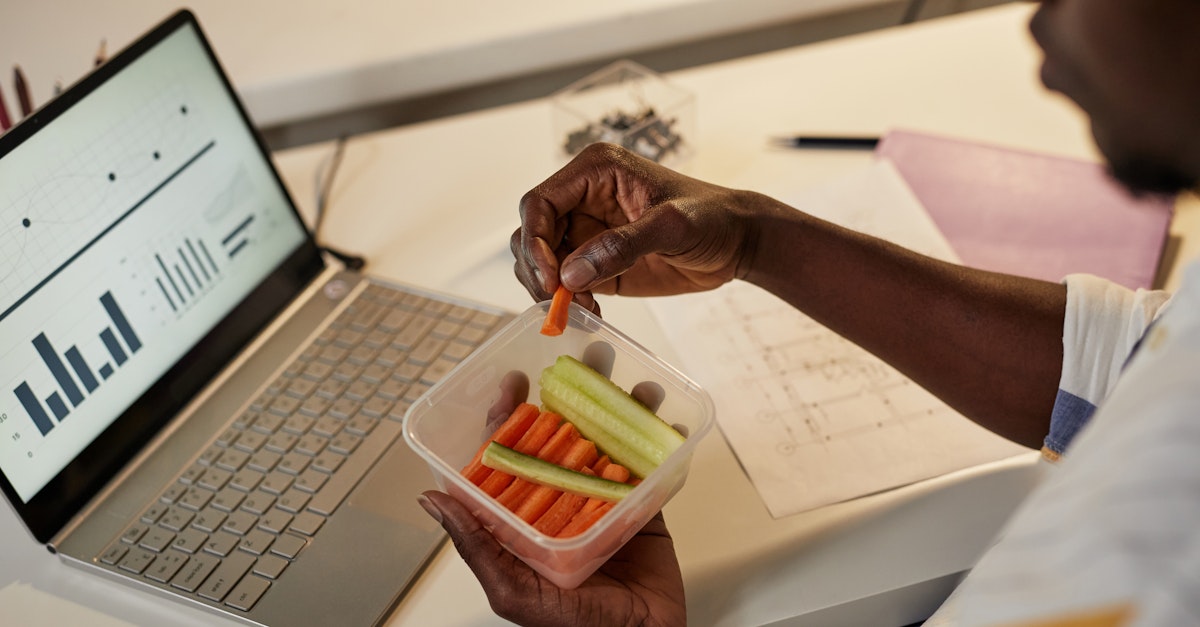How to improve your energy levels through diet
When it comes to boosting your energy levels through food, the answer isn't as simple as you might think. While all foods with calories technically provide energy, the way your body responds to these calories can vary significantly.
According to ZOE co-founder Prof. Tim Spector in his book Spoon-Fed, measuring the calorific value of a meal is straightforward, but understanding how those calories interact with your body is a different story.
Through ZOE's PREDICT program, which is the largest nutrition science study globally, it was discovered that even identical twins have different responses to the same foods based on their blood glucose and blood fat levels after eating.
In this article, we will delve into how food choices can impact your energy levels, recognizing that there is no one-size-fits-all solution. Different foods affect your energy in various ways, depending on their nutritional content and how your body reacts to them.
Energy Sources and Energy Levels
Let's start by examining the three macronutrients in food - carbohydrates, fats, and protein - to understand how they provide energy.
Carbohydrates are your body's primary energy source as they are broken down into sugar molecules that your cells use for energy. Fats, being the most energy-dense macronutrient, provide more energy per gram than carbohydrates or protein. Protein, essential for muscle and tissue function, is not as efficient as an energy source, but it plays a role in preventing fatigue.
While all three macronutrients can supply energy, carbohydrates offer a quicker energy source compared to fats and protein.
However, the impact of different foods on your energy levels can vary. For instance, certain foods can cause significant spikes in blood sugar, leading to subsequent dips that result in lower energy levels. Maintaining stable blood sugar levels can help improve overall energy levels.
By following a personalized nutrition plan tailored to your unique biology, you can potentially increase your energy levels. ZOE's internal data revealed that 82% of participants experienced improved energy levels after adhering to their personalized plan for three months.
With these considerations in mind, let's explore how specific foods influence energy levels, keeping in mind that individual responses may vary.
Foods with Complex Carbohydrates
Carbohydrates are essential for energy, but not all carbs are created equal. Complex carbs, found in vegetables, whole grains, fruits, legumes, nuts, and seeds, provide a sustained energy source due to their higher fiber content.
Fiber, a non-digestible carbohydrate, plays a crucial role in slowing down the release of sugars into the bloodstream, contributing to a steadier energy supply. Pairing carbs with fiber, protein, and fats can help regulate blood sugar levels and maintain energy levels.
Foods with Healthy Fats
Healthy fats, such as those found in avocados, nuts, seeds, oily fish, and olive oil, are vital for providing energy and delivering essential nutrients to the body. Pairing fats with carbohydrates can help slow down the absorption of sugars, preventing drastic blood sugar fluctuations that lead to energy crashes.
Foods with Protein
Protein, crucial for muscle function and tissue repair, can also serve as an energy source. While not as efficient as carbohydrates, protein takes longer to digest, providing a sustained release of energy when paired with complex carbs.
Gut-Friendly Foods
Promoting gut health through probiotic and prebiotic-rich foods can positively impact energy levels. A healthy gut microbiome is linked to improved sleep quality, which is essential for maintaining optimal energy levels.
By incorporating a variety of plant foods, colorful fruits, and limiting ultra-processed foods in your diet, you can support your gut health and enhance your overall well-being.
Quick Energy Boosters
For a rapid energy boost, opt for snacks that combine carbohydrates with proteins or healthy fats. These combinations can provide a quick source of energy without causing blood sugar spikes.
Foods to Eat Less Often
Avoiding ultra-processed foods and those high in added sugars, such as soda, breakfast cereals, and baked goods, can help prevent energy crashes and promote long-term health benefits.
Summary
When it comes to enhancing energy levels through food, focusing on nutrient-dense, unprocessed whole foods is key. Incorporating complex carbohydrates, healthy fats, proteins, and gut-friendly foods can help stabilize blood sugar levels and improve overall energy levels.
Remember, your body's response to food is unique, so listening to your body and making informed dietary choices based on your individual needs is essential. Consider taking the ZOE at-home test to gain personalized insights into your body's response to food and optimize your nutritional choices.
